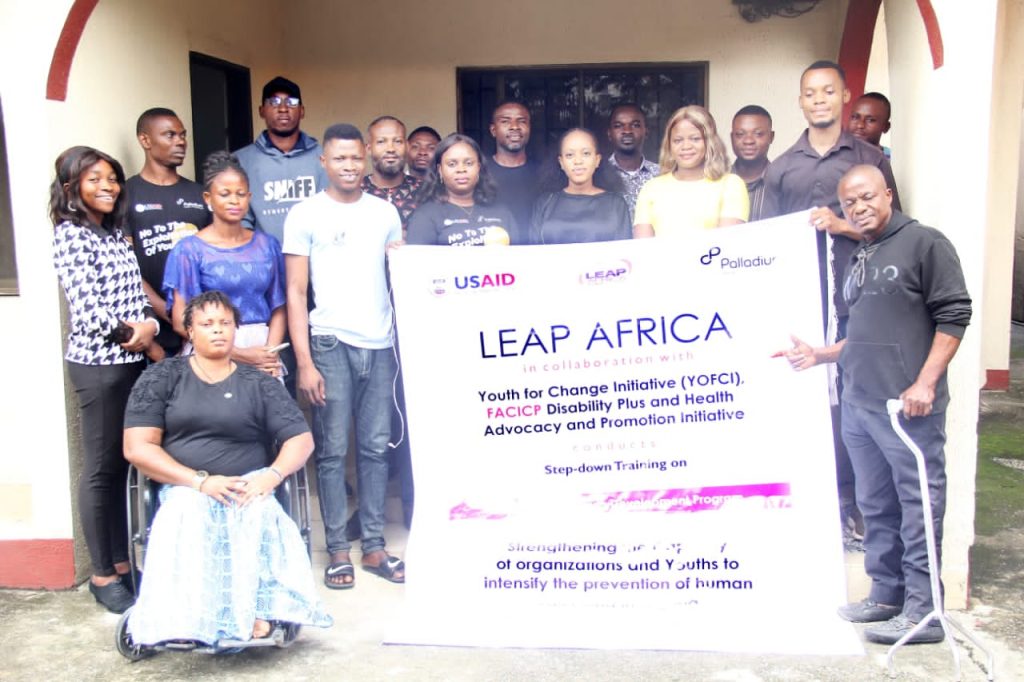YOFCI Proffers Strategy to Addressing increase in Trafficking in Persons

By Imó Etim
A youth-based organization, Youth for Change and Social Life Development Foundation fondly called Youth for Change Initiative (YOFCI) has pinpointed extreme poverty as one of the root causes of trafficking in persons in Nigeria.
Harrison Udim, Programs Lead for YOFCI said this in his remark during the step-down training on Counter Trafficking in Persons ( CTIP) organized by the foundation in partnership with LEAP Africa, FACICP Disability Plus and Health Advocacy and Development on the theme “Strengthening the Capacity and Youth to intensify the Prevention of Human Trafficking in Nigeria.”
Udim also noted that Trafficking was taking many forms and dimensions as the day went by, therefore, increasingly becoming complex to tackle as some people were willfully subjecting themselves to be exploited for personal reasons without necessarily considering the aftermath effects.
Harrison identified extreme poverty as the main cause for trafficking in persons especially in Nigeria, not being able to cater for basic needs, and the quest for greener pastures otherwise known as the ‘Japa’ syndrome is still traceable to poor means of livelihood.
Aside from poverty, other identified causes of trafficking in persons include the Illiteracy rate, lack of legitimate economic opportunities, demand for cheap labor/sex, lack of human rights protections, conflict and natural disasters, and corruption.
Joy Ubong, Programs Officer at YOFCI, while taking participants on handling trafficking in persons and best ways of communication with trafficked persons noted that for every case of trafficking, there was an influence behind it and until such influence or root causes were identified and nipped in the bud, the cycles would keep running.
YOFCI also noted that 75 percent of trafficking cases took place intra-states, 23 percent happened inter-states and just two percent took place internationally which necessitated the awareness and training to be taken to people at the community level to expose people to the risks involved.
The organisation added that when the act is discouraged at the village and community levels, it would be hard for it to grow to the international level.
One of the participants, Abasifreke Effiong highlighted concerns over the case of organized prostitution popularly known as “Hook-ups”, which is gaining ground by the day and that many even go out of their way to the level of paying a fee so they could be linked, asking for organizations to double up efforts in creating awareness to discourage the trend.









